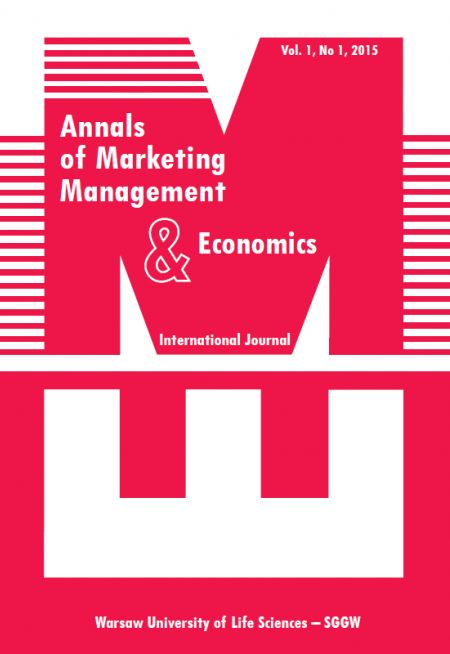Main Article Content
Article Details
Alekseeva N.I., Kotina G.M., Stepura M.M., 2015. Osoblyvosti rozrakhunku vartosti suspilnykh blah (vid neobkhidnoho do bazhanoho): vitchyzniani realii ta yevropeiskyi (Features of the calculation of the value of public goods (from the necessary to the desired): domestic realities and European) [in Ukrainian], Problems of the economy, Kyiv.
Andruschenko V.L., 2000. Finansova dumka Zakhodu v KhKhstolitti: (Teoretychna kontseptualizatsiia i naukova problematyka derzhavnykh finansiv), (Financial Opinion of the West in the 20th Century: (Theoretical Conceptualization and Scientific Problems of Public Finances) [in Ukrainian], Kamenyar, Lviv.
Becker G., 1994. Human Capital: A Theoretical and Empirical Analysis with Special Reference to Education (3rd Edition), National Bureau of Economic Research, Inc., New York.
Chekalovska H.Z., 2016. Public benefit of educational services in the system of stimulating of the development of the (new economy): the dissertation for the degree of Candidate of Economic Sciences, Chernivtsi National University by Yurii Fedkovych, Ministry of Education and Science of Ukraine, Chernivtsi.
Dluhopolskyi O.V., 2013. Public sector economics and public finance in globalization conditions: thesis for competition in scientific doctor's degree of economic science in speciality, SESI, Academy of Financial Management, Ministry of Finance of Ukraine, Kiev.
Kessidi F.H., 1983. Aristotel. Sobranie sochineniy: perevod s drevnegrecheskogo. (Aristotle. Collected works: translation from the anc. greek) [in Russian], Myisl, Moscow.
Lindahl E., 1958. Just Taxation - A Positive Solution, (in:) R.A. Musgrave , A.T. Peacock (eds) Classics in the Theory of Public Finance, International Economic Association Series, Palgrave Macmillan, London. (Crossref)
Losev A.F., Asmus V.F., Taho-Godi A.A., 1993. Platon. Sobranie sochineniy: perevod s drevnegrecheskogo (Platon. Collected works: translation from the anc. greek) [in Russian], Myisl, Moscow.
Marshal A., 1993. Printsipy ekonomicheskoy nauki (Principles of economic science) [in Russian], Progress, Moscow.
Masgreyv R., Masgreyv P., 2009. Gosudarstvennye finansy: teoriya i praktika (Public Finances: Theory and Practice) [in Russian], Business Atlas, Moscow.
Matyuk T.V., 2015. Sotsialnyi kharakter osvitnikh posluh ta ekonomichna polityka derzhavy (The social nature of educational services and the economic policy of the state) [in Ukrainian], Economic Bulletin of the National Mining University, Dnipropetrovsk.
Menger K., 2005. Izbrannye raboty (Selected works) [in Russian], Publishing house Territory of the Future, Moscow.
OECD, 2017. Education at a Glance 2017, OECD Indicators, OECD Publishing, Paris, retrieved from http://dx.doi.org/10.1787/eag-2017-en [accessed: 20.02.2017]. (Crossref)
Otroshko O.V., 2011. Suspilni blaha: uiavni ta diisni vidminni rysy (Public goods: imaginary and valid distinctive features) [in Ukrainian], Collection of scientific works Theoretical and applied issues of economics, Kyiv.
Rubinshteyn A.Y., 2008. K teorii rynkov 'opekaemykh blag' (On the theory of markets of guards of good) [in Russian], Institute of Economics, Russian Academy of Sciences, Moscow.
Samuelson P. A., Nordhaus W. D., 2012. Economics. Tata McGraw Hill Education Private Limited, New Delhi.
Sevastyanova E. A., Veretennikova A. Y., 2016. Institutsionalnoe razvitie lokalnykh obshchestvennykh blag (Institutional development of local public goods) [in Ukrainian], Bulletin of YURGTU (NPI), Ekaterinburg.
Smith A., 1937. An inquiry into the nature and causes of the wealth of nations, The Wealth of Nations, The Modern Library, New York.
Sokolov V.V., 1991. Gobbs T. Sochineniya (Gobbs T. Collected works: translation from the Latin) [in Russian], Myisl, Moscow.
Turou L. K., 1999. Budushchee kapitalizma. Kak segodnyashnie ekonomicheskie sily formiruyut zavtrashniy mir (The future of capitalism. How today's economic forces form tomorrow's world) [in Russian], Siberian Chronograph, Novosibirsk.
Ukrainian State Statistics Service, 2015, National Accounts of Education of Ukraine, Statistical Bulletin.
Downloads

This work is licensed under a Creative Commons Attribution 4.0 International License.





